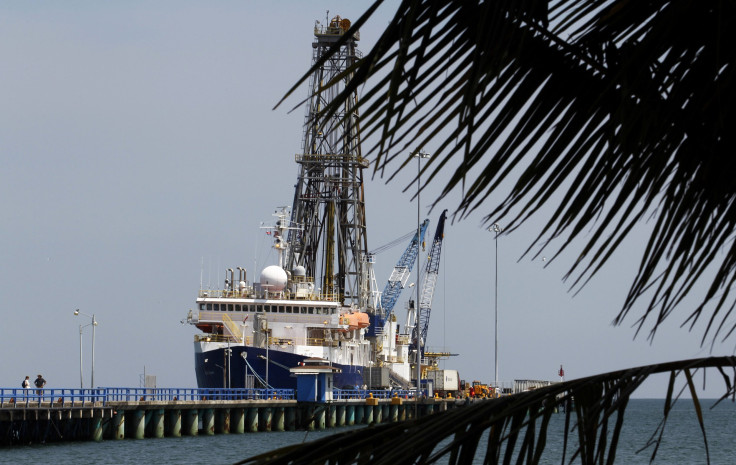China-Led International Ocean Exploration Mission To Look For Oil In South China Sea, Including In Disputed Regions

In a first-of-its-kind exercise for the world’s second-largest economy, an international scientific expedition to look for oil in the South China Sea will set sail from Hong Kong on Tuesday, according to the South China Morning Post.
The trip is part of the latest edition of the decade-long International Ocean Discovery Program that will run from 2013 to 2023. The IODP was launched by the U.S. in the 1960s, and its latest effort will include 31 scientists from 10 countries drilling at three different sites for two months.
"Oil and gas fields lie close to the coast, but the key is to open the treasure box buried beneath the basin," Wang Pinxian, a marine geologist and member of the Chinese Academy of Sciences, told the Post Monday.
The IODP invited proposals from 26 member nations and, while a proposal to drill in the controversial South China Sea -- first proposed by China in 2008 -- was not the most popular one, it was reportedly mainly chosen because the Chinese government agreed to pick up 70 percent, or $6 million, of the mission’s tab. The NSF, which used to contribute 70 per cent of the Joides Resolution's expenses, cut its annual ocean drilling budget to $50 million last year, David Divins, director of the IODP’s ocean drilling program.
The expedition will sail aboard the American scientific drill ship, Joides Resolution, operated by the National Science Foundation, or NSF, the Post reported, adding that the voyage will take the team to waters claimed variously by China, the Philippines and Vietnam.
So far, the ship has received permission from the Philippines and Beijing but is waiting for a response from the Vietnamese government to drill at a site in the southwest part of the South China Sea, the Post reported, citing Divins, adding that the expedition may have to opt for an alternative site.
Tensions stemming from China's energy interests are a constant undercurrent to the region's geopolitics. For instance, in May 2012, China began drilling to new depths in the South China Sea, 200 miles southeast of Hong Kong, with the launch of its first deep-water oil drilling rig, triggering tensions between Manila and Beijing. In December 2012, China had asked Vietnam to stop exploring for oil in disputed areas of the South China Sea and demanded that the latter not harass Chinese fishing boats.
However, findings of the IODP expedition, which includes 13 scientists from mainland China, nine from the U.S. and one from Taiwan, will reportedly be shared around the world, including with countries that are not part of the program.
© Copyright IBTimes 2024. All rights reserved.





















